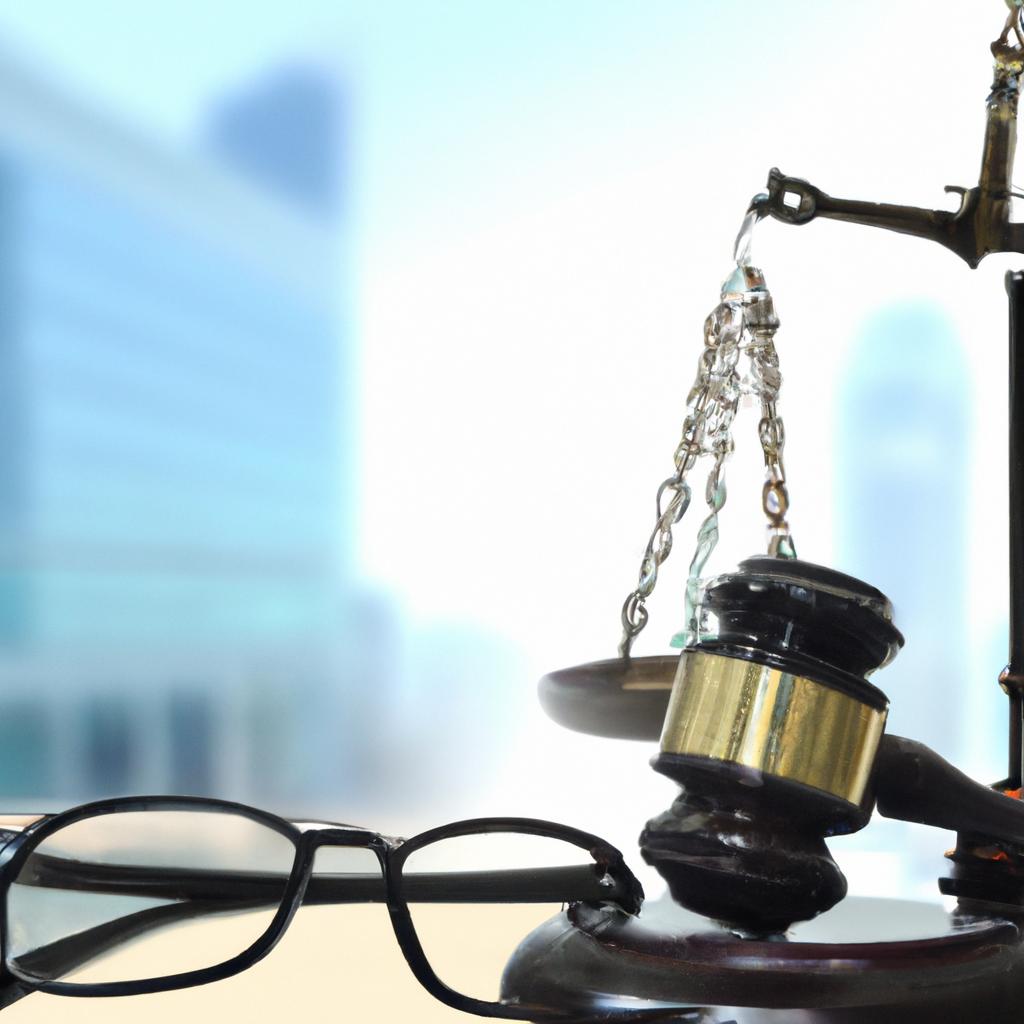As the intricate tapestry of estate planning unfolds, one key player often takes center stage – the trustee of a will. In the labyrinth of legal jargon and familial intricacies, the trustee plays a crucial role in ensuring the wishes of the deceased are carried out with integrity and diligence. At Morgan Legal Group in the bustling metropolis of New York City, our team of experienced attorneys navigates the complexities of estate planning, probate, elder law, wills, and trusts with precision and care. Join us as we delve into the essential duties and responsibilities of the trustee of a will, shedding light on this vital role in the realm of legal guardianship.
Key Duties of a Trustee in a Will
When it comes to the , it is essential to understand the significant responsibilities that come with this role. A trustee is appointed to manage and distribute assets according to the wishes outlined in the will. This is a position of great trust and fiduciary duty, requiring the utmost care and attention to detail.
One of the primary duties of a trustee is to safeguard the assets of the estate and ensure they are distributed in accordance with the terms of the will. This involves managing investments, paying debts and taxes, and distributing assets to beneficiaries. Additionally, a trustee must act impartially and in the best interests of all beneficiaries, avoiding any conflicts of interest. Communication with beneficiaries is also crucial, as transparency and accountability are key aspects of fulfilling the duties of a trustee.

Navigating Legal Responsibilities and Fiduciary Obligations
As a trustee of a will, you hold a critical role in the distribution and management of assets according to the wishes of the deceased. It is essential to understand the responsibilities and obligations that come with this position to carry out your duties effectively and in compliance with the law.
**Some key responsibilities and duties of a trustee of a will include:**
- Managing and distributing assets according to the terms of the will
- Acting in the best interests of the beneficiaries
- Keeping accurate records of all transactions and communications
- Filing necessary tax returns on behalf of the estate
| Term | Definition |
|---|---|
| Trustee | The individual appointed to administer and manage the assets of a trust according to the trust agreement |
| Fiduciary | A person who has a legal duty to act in the best interests of another party |

Importance of Selecting a Trustworthy and Knowledgeable Trustee
When it comes to estate planning, selecting a trustworthy and knowledgeable trustee is of utmost importance. A trustee plays a crucial role in administering the terms of a will and ensuring that the wishes of the deceased are carried out accurately and efficiently. It is essential to choose someone who not only has the integrity and honesty to act in the best interests of the beneficiaries but also possesses the expertise and understanding of the legal and financial responsibilities involved in the role.
One of the key responsibilities of a trustee is to manage the assets of the estate prudently and make informed decisions on behalf of the beneficiaries. This requires a deep understanding of financial matters, investment strategies, and tax implications. A trustee should also have a comprehensive knowledge of trust and estate laws to navigate potential challenges and disputes that may arise during the administration process. By selecting a trustworthy and knowledgeable trustee, you can ensure that your legacy is protected and that your loved ones are provided for according to your wishes.

Considerations When Choosing a Professional Trustee from Morgan Legal Group
When choosing a professional trustee from Morgan Legal Group, it is important to consider several key factors to ensure that your estate plan is in capable hands. One of the most crucial considerations is the trustee’s level of experience and expertise in trust administration. A professional trustee should have a deep understanding of trust law and be able to navigate complex legal and financial matters with ease.
Additionally, it is essential to choose a trustee who is committed to upholding your wishes and acting in the best interests of your beneficiaries. Trustworthiness and integrity are non-negotiable qualities in a trustee, as they will be responsible for managing your assets and distributing them according to your instructions. Finally, communication and transparency are vital when selecting a trustee, as you should feel confident that your trustee will keep you informed and provide regular updates on the status of your trust.
Q&A
Q: What is a trustee of a will and what role do they play?
A: A trustee of a will is a person or entity appointed to manage the assets and property left behind in a will on behalf of the beneficiaries. They are responsible for ensuring that the wishes of the deceased are carried out and that the assets are distributed appropriately.
Q: How is a trustee of a will chosen?
A: A trustee of a will is typically chosen by the person creating the will, known as the testator. They can be a family member, friend, attorney, or financial institution. It is important to choose someone who is trustworthy, competent, and willing to take on the responsibilities of a trustee.
Q: What are the duties of a trustee of a will?
A: The duties of a trustee of a will include managing the assets and property in the estate, distributing assets to the beneficiaries according to the terms of the will, resolving any disputes among beneficiaries, and keeping accurate records of all transactions.
Q: Can a trustee of a will be changed?
A: Yes, a trustee of a will can be changed if the testator or the beneficiaries feel that the current trustee is no longer capable of carrying out their duties. This can be done through a formal process of revoking the appointment and appointing a new trustee.
Q: What happens if a trustee of a will does not fulfill their duties?
A: If a trustee of a will does not fulfill their duties, they can be held legally responsible and removed from their position. The beneficiaries may also have the right to take legal action to ensure that the assets are properly managed and distributed.
Key Takeaways
In conclusion, understanding the role of a trustee in a will is crucial in ensuring that your final wishes are carried out as intended. Whether you are appointing a trustee for a specific purpose or to manage your entire estate, their responsibilities are significant and require careful consideration. By selecting a trustworthy and competent individual to serve as a trustee, you can have peace of mind knowing that your wishes will be fulfilled after you are gone. Trustee, after all, carries the weight of your trust on their shoulders.
 Trusts are a popular method of estate planning and asset protection that allows individuals to have control over how their assets are managed and distributed after their death. A trust involves three main parties: the settlor (the person who creates the trust), the beneficiary (the person who receives the benefits of the trust), and the trustee (the person or entity responsible for managing and administering the trust). In this article, we will focus on the role of a trustee in a will, which is one type of trust.
Trusts are a popular method of estate planning and asset protection that allows individuals to have control over how their assets are managed and distributed after their death. A trust involves three main parties: the settlor (the person who creates the trust), the beneficiary (the person who receives the benefits of the trust), and the trustee (the person or entity responsible for managing and administering the trust). In this article, we will focus on the role of a trustee in a will, which is one type of trust.
What is a Trustee of a Will?
A trustee of a will, also known as an executor, is responsible for managing and distributing the assets of a deceased person according to the instructions laid out in their will. The trustee of a will has a crucial role in ensuring that the wishes of the deceased are carried out accurately, and the assets are distributed to the beneficiaries in a timely and efficient manner.
Who can be a Trustee of a Will?
The trustee of a will is typically appointed by the testator (the person creating the will) in their will. A trustee can be any person or entity that the testator trusts to carry out their wishes. This can include family members, close friends, or a trusted financial institution. It is important to choose a trustee who is responsible, organized, and has the necessary expertise to handle the duties required.
What are the Duties of a Trustee of a Will?
The duties of a trustee of a will can be divided into two main categories: administrative and fiduciary.
1. Administrative Duties:
The administrative duties of a trustee include:
– Obtaining Letters Testamentary: Before a trustee can begin their duties, they must obtain letters testamentary from a probate court. These are legal documents that authorize the trustee to act on behalf of the estate.
– Identifying and Collecting Assets: The trustee must locate and collect all the assets of the deceased, including real estate, bank accounts, investments, and personal belongings.
– Paying Debts and Taxes: The trustee is responsible for paying off any outstanding debts of the deceased, including funeral expenses, taxes, and creditor claims.
– Maintaining Accurate Records: The trustee must keep detailed records of all financial transactions related to the estate to ensure transparency and accountability.
– Distributing Assets: Once all the debts and taxes have been paid, the trustee is responsible for distributing the remaining assets to the beneficiaries according to the instructions specified in the will.
2. Fiduciary Duties:
As a fiduciary, the trustee has a legal obligation to act in the best interests of the beneficiaries. This includes:
– Loyalty: The trustee must act solely in the best interests of the beneficiaries and avoid any conflicts of interest.
– Prudence: The trustee must handle the assets of the estate with care, making sound and responsible investment decisions.
– Impartiality: The trustee must treat all beneficiaries equally and impartially, regardless of their relationship with the deceased.
– Communication: The trustee has a duty to communicate with the beneficiaries and keep them informed about the status of the estate.
What are the Benefits of Appointing a Trustee of a Will?
There are several benefits to appointing a trustee of a will:
1. Speed and efficiency:
A trustee of a will can ensure that the assets are distributed in a timely and efficient manner. They have the necessary expertise to handle the administrative tasks involved and can help avoid delays in the distribution of assets.
2. Objectivity:
The trustee is an impartial party appointed to carry out the wishes of the deceased. This can help avoid conflicts between family members over who should handle the estate.
3. Legal expertise:
A trustee is often a professional such as a lawyer or financial advisor who has experience and knowledge in estate planning and probate procedures. This can help ensure that the estate is managed and distributed in compliance with state laws and regulations.
Practical Tips for Choosing a Trustee of a Will
Choosing the right trustee is crucial to the success of a will. Here are some practical tips to keep in mind while selecting a trustee:
– Choose someone you trust: The most important factor to consider while choosing a trustee is trust. You must have confidence in their ability to manage and distribute your assets according to your wishes.
– Consider their expertise: The trustee of a will should have the necessary skills and experience to handle the duties involved. This can include financial management, legal knowledge, and organizational skills.
– Think long-term: A trustee may have to carry out their duties for several years, so it is essential to choose someone who is willing and able to commit to the role for the long haul.
– Consider a professional trustee: While a family member or close friend may be a suitable choice, it can be a significant responsibility that they may not have the time or expertise for. In such cases, it may be wise to choose a professional trustee, such as a financial institution or trust company, to handle the duties.
Conclusion
In summary, a trustee of a will plays a crucial role in the administration and distribution of assets after a person’s death. They have both administrative and fiduciary duties to carry out and must have the necessary skills and expertise to handle their responsibilities. Choosing the right trustee is vital for the smooth and efficient distribution of your assets and ensuring that your wishes are fulfilled after your passing.

